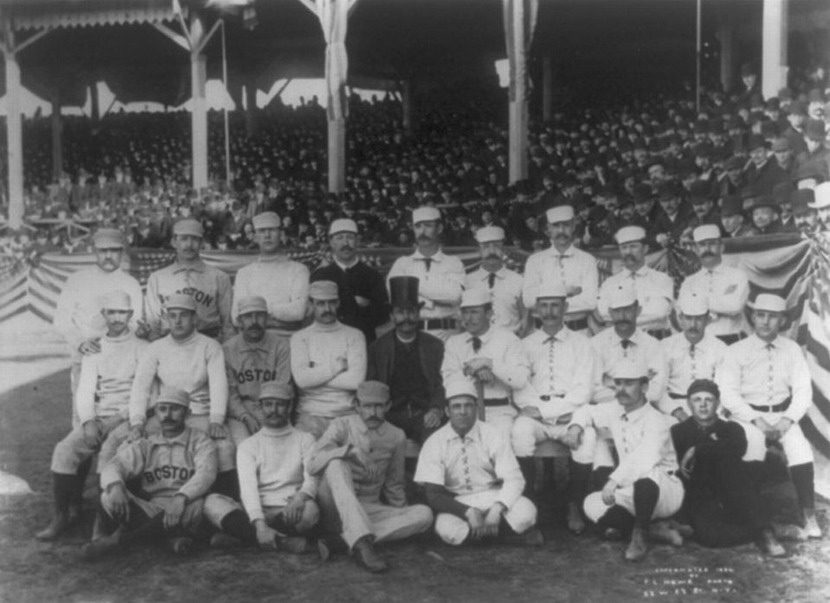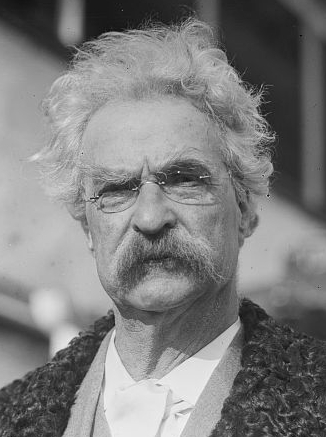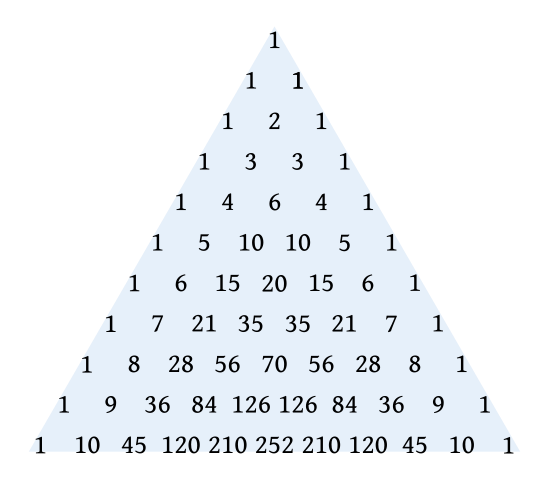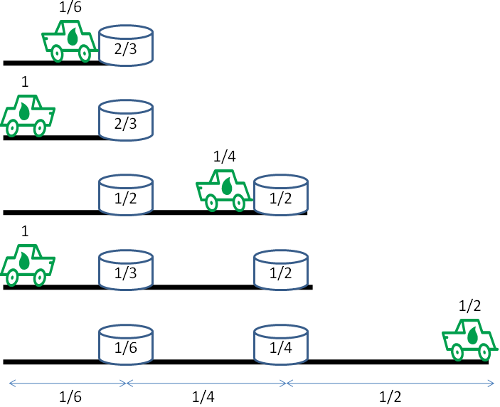Austrian mechanical engineer Gernot Zippe invented the Zippe-type centrifuge.
In Hebrew, his name (גרנוט ציפה), is an anagram of the word “centrifuge” (צנטריפוגה).
Austrian mechanical engineer Gernot Zippe invented the Zippe-type centrifuge.
In Hebrew, his name (גרנוט ציפה), is an anagram of the word “centrifuge” (צנטריפוגה).

Maybe this was inevitable: A team of mathematicians have worked out the most efficient pub crawl in the United Kingdom, connecting 24,727 pubs in the shortest possible closed loop, 45,495,239 meters, or about 28,269 miles. Because it’s a loop, a determined crawler can start at any point and eventually find himself back home.
Despite the pickled application, this represents a serious achievement in computational mathematics, an advance in the so-called traveling salesman problem (TSP), which asks for the shortest route that passes through each of a set of points once and once only. The pub crawl includes more than 100 times the previous record number of stops in a road-distance TSP.
“We, of course, did not have in mind to bring everything mathematics has to bear in order to improve the lot of a wandering pub aficionado,” wrote lead researcher William Cook of the University of Waterloo. “The world has limited resources and the aim of the applied mathematics fields of mathematical optimisation and operations research is to create tools to help us to use these resources as efficiently as possible.”
(Thanks, Danesh.)

Here are the Boston Beaneaters and the New York Giants on opening day 1886.
Tempers must have been running high that day — pitcher Old Hoss Radbourn (back row, far left) is giving the finger to the cameraman, the first known photograph of the gesture.

In Languages and Their Speakers (1979), linguist Timothy Shopen shows how greetings and leave-takings can reflect a society’s cultural values. First he gives a typical American conversation in which one friend encounters another who is 15 minutes late for work:
Hello Ed!
— Hi! How are you?
Sorry, I’m in a hurry.
— Yeah, me too.
See you on Saturday.
The whole interaction lasts five seconds; it includes a greeting and a leave-taking, but there is no actual conversation between. Here’s the same interaction in the Maninka culture of West Africa:
Ah Sedou, you and the morning.
— Excellent. You and the morning.
Did you sleep in peace?
— Only peace.
Are the people of the household well?
— There is no trouble.
Are you well?
— Peace, praise Allah. Did you sleep well?
Praise Allah. You Kanté.
— Excellent. You Diarra.
Excellent.
— And the family?
I thank Allah. Is there peace?
— We are here.
How is your mother?
— No trouble.
And your cousin Fanta?
— Only peace. And your father?
Praise Allah. He greets you.
— Tell him I have heard it.
And your younger brother Amadou?
— He is well. And your uncle Sidi?
No trouble, Praise Allah …
Where are you going?
— I’m going to the market. And you?
My boss is waiting for me.
— O.K. then, I’ll see you later.
Yes, I’ll see you later. Greet the people of the household.
— They will hear it. Greet your father.
He will hear it.
— May your day pass well.
Amen. May the market go well.
— Amen. May we meet soon.
May that “soon” arrive in good stead.
“Time elapsed: 46 seconds,” Shopen writes. “It is more important to show respect for a friend or a kinsman than to be on time for work, and thus we have the example of Mamadou Diarra above, already fifteen minutes late for work and not hesitating to be even later in order to greet a friend in the proper manner. First things first, and there is no question for the Maninka people about what is most important.”

After his daughter Jean’s death in 1909, Mark Twain began to write:
Would I bring her back to life if I could do it? I would not. If a word would do it, I would beg for strength to withhold the word. And I would have the strength; I am sure of it. In her loss I am almost bankrupt, and my life is a bitterness, but I am content: for she has been enriched with the most precious of all gifts — that gift which makes all other gifts mean and poor — death. I have never wanted any released friend of mine restored to life since I reached manhood. I felt in this way when Susy passed away; and later my wife, and later Mr. Rogers. When Clara met me at the station in New York and told me Mr. Rogers had died suddenly that morning, my thought was, Oh, favorite of fortune — fortunate all his long and lovely life — fortunate to his latest moment! The reporters said there were tears of sorrow in my eyes. True — but they were for ME, not for him. He had suffered no loss. All the fortunes he had ever made before were poverty compared with this one.
“I am setting it down,” he told his friend Albert Bigelow Paine, “everything. It is a relief to me to write it. It furnishes me an excuse for thinking.”
He wrote for three days, handed the manuscript to Paine, and told him to make it the final chapter of his autobiography. Four months later he was dead.

Reader Alex Freuman passed this along — a simple method of establishing any row in Pascal’s triangle, attributed to Edric Cane. To establish, for example, the seventh row (after the initial solitary 1), create a row of fractions in which the numerators are 7, 6, 5, 4, 3, 2, 1 and the denominators are 1, 2, 3, 4, 5, 6, 7:
Now multiply these in sequence, cumulatively, to get the numbers for the seventh row of the triangle:
These are the coefficients for
.
Cane writes, “It couldn’t be easier to remember or to implement.” Another example — row 10:

obtest
v. to call heaven to witness; to protest against
proditor
n. a traitor; a betrayer
Is a union breaking the law if it posts a giant inflatable rat outside an employer’s facility? No, it’s not, according to a 2011 decision by the National Labor Relations Board. The Sheet Metal Workers’ Union had sought to dissuade a hospital from using non-union workers by stationing a 16-foot rat near the building’s entrance. The NLRB held that the “the use of the stationary Giant Rat (i) constituted peaceful and constitutionally protectable expression, (ii) did not involve confrontational conduct that would qualify as unlawful picketing, and (iii) did not qualify as nonpicketing conduct that was otherwise unlawfully coercive.”
The “rat collosi” are multiplying (gallery). Let’s hope they don’t stage an uprising themselves someday.

The horse raced past the barn fell.
That’s a grammatically correct sentence. What does it mean? Most readers have to puzzle over it a bit before seeing the interpretation
The horse [that was] raced past the barn fell.
This is a “garden-path sentence” — the reader naturally assumes one interpretation and is confused to find that another had been intended. Further examples:
The old man the boat.
The government plans to raise taxes were defeated.
The cotton clothing is made of grows in Alabama.
I convinced her children are noisy.
Time flies like an arrow; fruit flies like a banana.
In writing, lexicographer Henry Fowler calls it “an obvious folly — so obvious that no one commits it wittingly except when surprise is designed to amuse. But writers are apt to forget that, if the false scent is there, it is no excuse to say they did not intend to lay it; it is their business to see that it is not there, and this requires more care than might be supposed.”

Here are six new lateral thinking puzzles to test your wits and stump your friends — play along with us as we try to untangle some perplexing situations using yes-or-no questions.

An adventurer wants to explore a desert. He has a jeep that can carry up to 1 unit of fuel at any time and that will travel 1 unit of distance on 1 unit of fuel. As he travels he can leave any amount of the fuel that he’s carrying at any point, as a fuel dump to be picked up later. He starts from a fixed base at the edge of the desert, where there’s an unlimited supply of fuel. How far into the desert can he go if he wants to return safely to the base at the end of each trip?
Surprisingly, with some intelligent planning he can go as far as he likes. The diagram above shows how far he can get with 3 trips:
So if 3 trips are planned the explorer can travel a round-trip distance of 1 + 1/2 + 1/3 = 11/6 units. You can see the pattern: If the explorer had planned 4 trips, he would set up fuel dumps at distances of 1/8, 1/6, and 1/4 from the base, initially storing 3/4, 2/3, and 1/2 units at each and then drawing 1/8, 1/6, and 1/4 units of fuel from each on each visit. As before, on the final trip he could depart the last fuel dump with a full tank, drive 1/2 unit into the desert, and then return to the base, exhausting each fuel dump on the way. In that case he’d have traveled a round-trip distance of 1 + 1/2 + 1/3 + 1/4 = 25/12 units.
This is just the harmonic series, 1 + 1/2 + 1/3 + 1/4 + 1/5 + …, which is divergent — in principle, at least, the explorer can travel as far as he likes into the desert, provided he plans a large enough series of trips. In practice it would be very difficult, though — both the number of fuel dumps and the total amount of fuel necessary increase exponentially with the distance to be traveled.